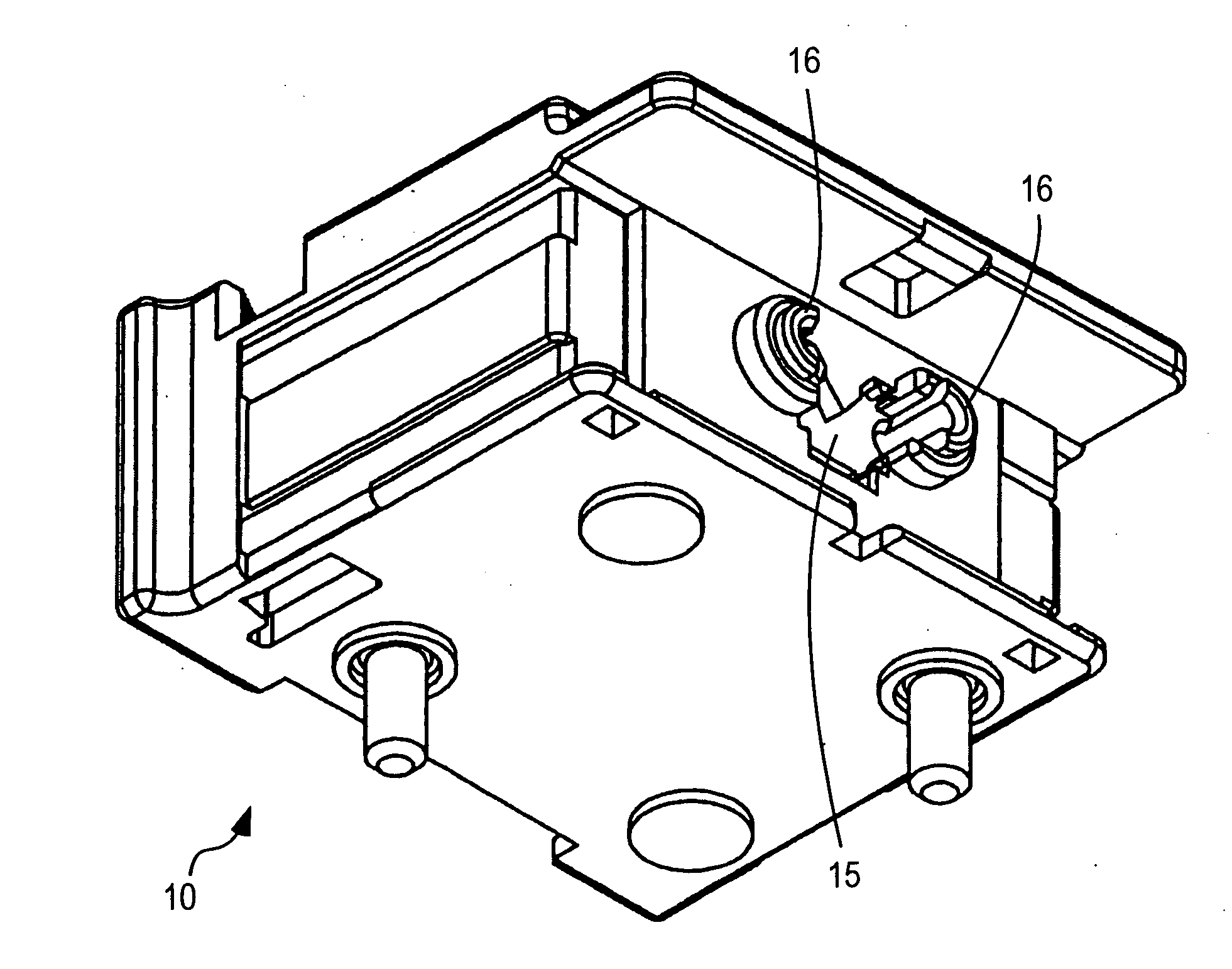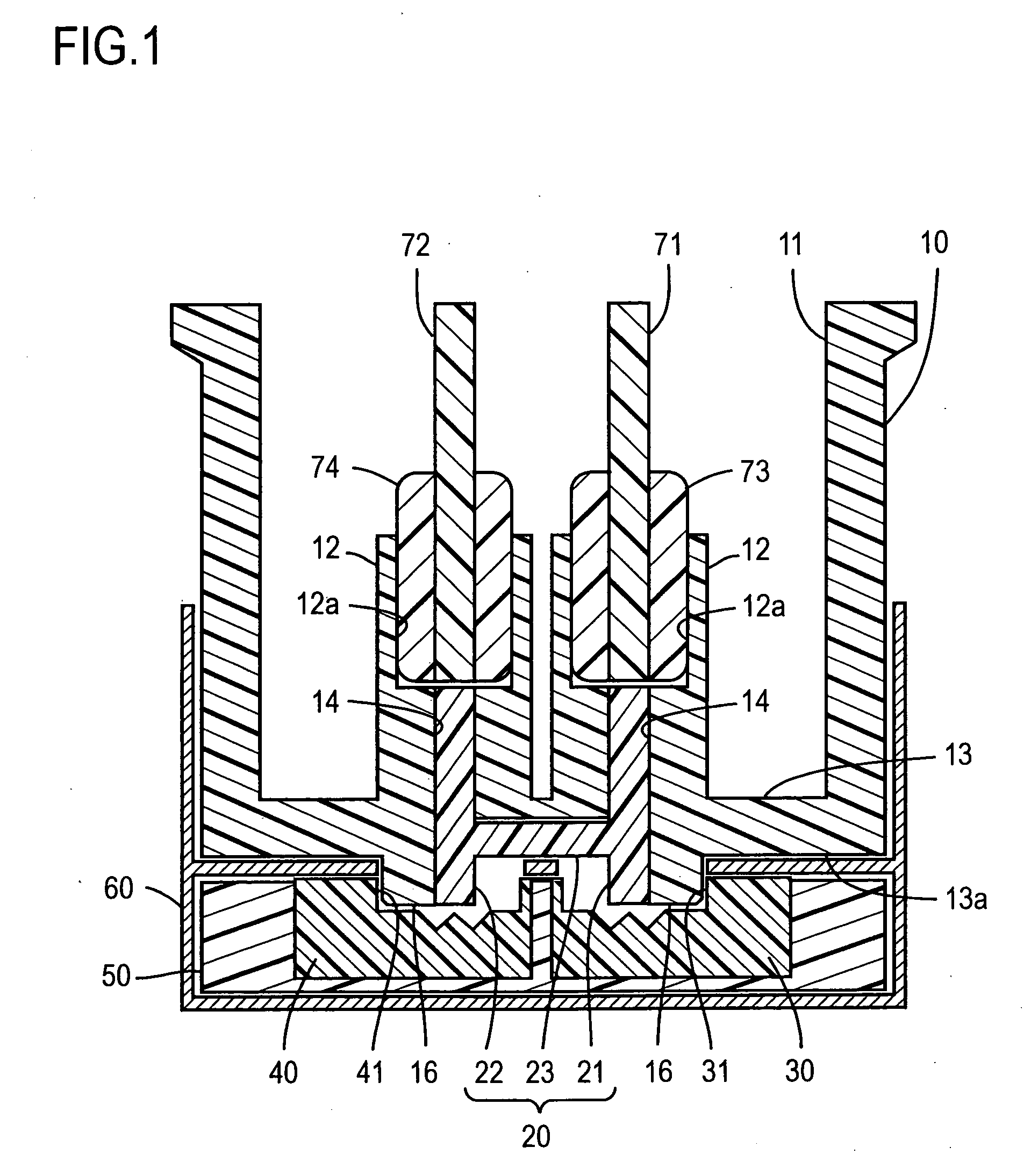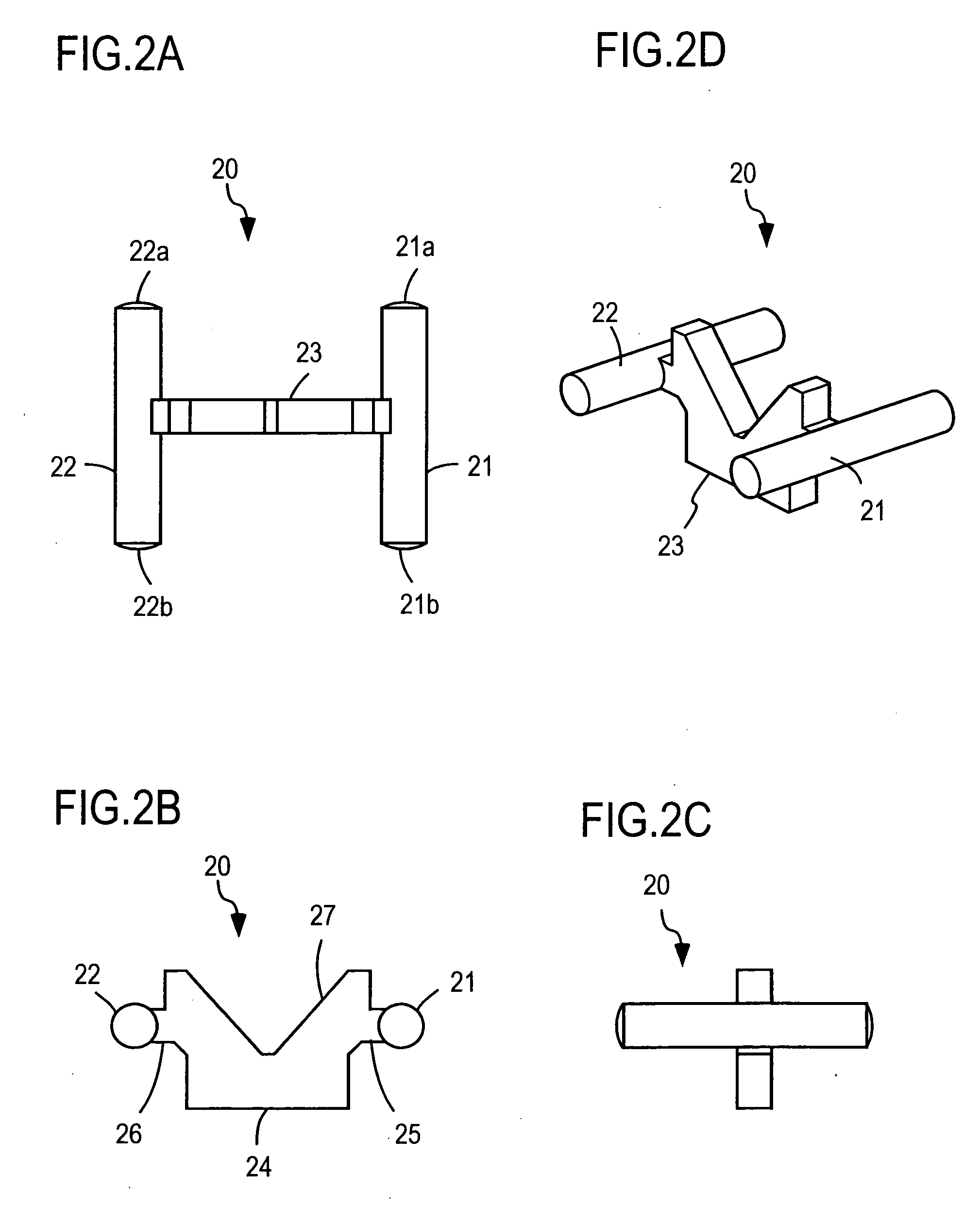Connector for two-way optical communications
a technology of optical communication and connector, which is applied in the direction of optical elements, semiconductor lasers, instruments, etc., can solve the problems of deteriorating the optical property of the connector, large loss of optical coupling, and deteriorating the optical property of the light guide, so as to achieve stable and excellent optical properties, low optical coupling loss, and the effect of low cos
- Summary
- Abstract
- Description
- Claims
- Application Information
AI Technical Summary
Benefits of technology
Problems solved by technology
Method used
Image
Examples
Embodiment Construction
[0057] A preferred embodiment of the present invention will now be described below.
[0058] The embodiment of the present invention will be described based on examples with reference to the accompanying drawings. Parts corresponding to those of FIGS. 1 to 5 are indicated by the same reference numerals and the detailed explanation thereof is omitted.
[0059]FIG. 6 shows the appearance of a connector for two-way optical communications of the present invention. FIG. 7 shows a state in which the connector is disassembled into parts. FIG. 8 shows the partially disassembled connector which is viewed from the front of the connector, that is, in the opposite direction from FIG. 7.
[0060] In this example, as shown in FIG. 7, the connector comprises a receptacle body 10, a light guide unit 20, a light-emitting device 30, a light-receiving device 40, a device holder 50, and a shield cover 60 as in the connector of FIGS. 1 to 5. Further, the connector comprises two attachments 81. The two attachm...
PUM
 Login to View More
Login to View More Abstract
Description
Claims
Application Information
 Login to View More
Login to View More - R&D
- Intellectual Property
- Life Sciences
- Materials
- Tech Scout
- Unparalleled Data Quality
- Higher Quality Content
- 60% Fewer Hallucinations
Browse by: Latest US Patents, China's latest patents, Technical Efficacy Thesaurus, Application Domain, Technology Topic, Popular Technical Reports.
© 2025 PatSnap. All rights reserved.Legal|Privacy policy|Modern Slavery Act Transparency Statement|Sitemap|About US| Contact US: help@patsnap.com



